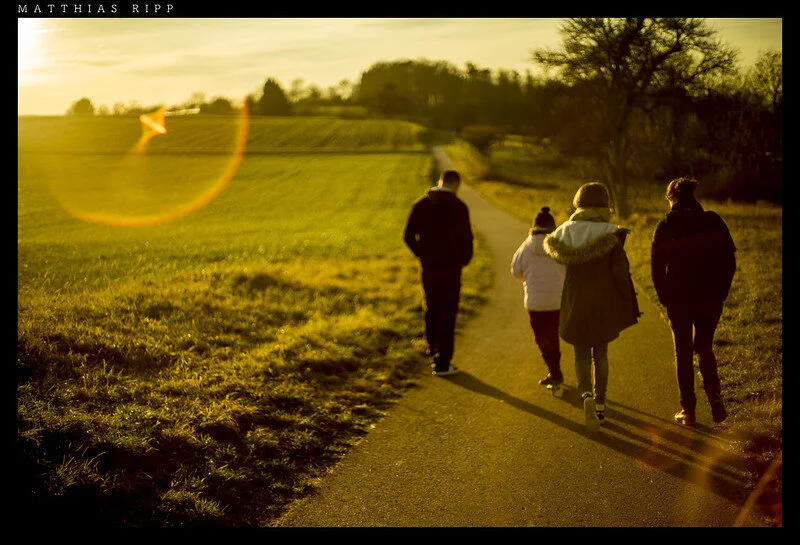Walking: The Path To A Healthier Life
As I sit here in front of my monitor, researching the benefits of being outdoors, I can’t help but reflect on how sedentary our lives have become. Sure, the pandemic has brought livelihoods across the globe to a standstill, but this habitual change started well before covid struck. From the turn of the millennia, the world wide web has been connecting people all over the world, bringing digital experiences into our bedrooms and making routine tasks that much more effort-free. In just a single generation, most of the world seems to have collectively succumbed to this self-destructive craze of alienating itself from physical activity. Now, with so much technology at our fingertips, why drive to Tesco when you can order your groceries with just a few clicks on the app?
Bizarrely, many of us actually now need to schedule activities into our diaries, perhaps even join a gym, to ensure we do that 2-3 hours per week recommended by some health journal we’ve read online. Commercial farming has also destroyed our diets, according to many experts, although that’s somewhat of a different topic. Going back to our modern-day lifestyles, I wonder what our ancestors would think if they could see the lives we now live. We are a hunter-gatherer species, after all, and potentially the most successful one to have colonised the planet, yet mass ignorance seems to be reversing some of the incredible breakthroughs in medical science over the past century.
This mass phenomena of actively seeking to exert as little energy as possible has given rise to a number of maladies and disorders, the consequences of which are largely yet to be fully realised. In the first world, for instance, diabetes rates are rising exponentially. Heart disease is now the world’s biggest killer, responsible for one in six deaths worldwide. There are various other circulatory and pulmonary diseases now widely prevalent, many of which are associated with the unhealthy lifestyles we lead, and the day-to-day choices we make.
Well, we’re here to tell you that it’s never too late to change the way you live. Forget the trend; forget the statistics: If you concentrate on looking after you, that’s all that matters. So if you’ve recently signed up to one of our trekking events, consider it an opportunity to offer you that purpose, that goal, that incentive, and start getting yourself outdoors. Start off on your lunch break and then take it into your weekends and days off! The benefit this will have on your physical and mental wellbeing will quickly become apparent, trust us!
Physical activity does not have to be vigorous or done for long periods in order to improve your health. A 2007 study of inactive women found that just 75 minutes per week improved their fitness levels significantly. Low-intensity training is also more beneficial than many of us realise. When we think of the best way to shred calories we picture ourselves running full pelt on a treadmill or interval training on a peloton. No doubt, these will aid your endurance greatly, but your fat burn zone lies around 60% of your maximum heart rate, so doing mild-to-moderate exercise for longer periods of time can actually serve you more benefit when it comes to getting rid of those love handles.
Walking is a great way to improve or maintain your overall health. Just 30 minutes each day can increase cardiovascular fitness, strengthen bones, reduce excess body fat, and boost muscle power and endurance. It can also reduce your risk of developing conditions such as heart disease, type 2 diabetes, osteoporosis and some cancers. Unlike some other forms of exercise, walking is free, it’s low impact, it can be done at your own pace, at any time of the day, and doesn’t require any special equipment or training. Walking is a great form of physical activity for people who are overweight, elderly, or who haven’t exercised in a long time.
You carry your own body weight when you walk. This is known as weight-bearing exercise. As with most forms of physical activity, walking can have a whole host of benefits for both your physical and mental health.
Mental health benefits
A fact that is often overlooked is that exercise releases feel-good hormones, and studies have shown that walking can:
improve your mood
reduce stress
manage anxiety
help you sleep better
increase your energy
help you to cope with difficult times
improve your confidence and self-esteem
reduce the risk of depression
Physical health benefits
As well as helping to look after your mental health, walking also helps to look after your physical health, by helping you to:
maintain a healthy weight
reduce body fat and cholesterol
keep your muscles and bones healthy
increase your cardiovascular and pulmonary (heart and lung) fitness
reduce the risk of heart disease and stroke
improve the management of conditions such as diabetes and hypertension (high blood pressure)
strengthen bones and improve balance
increase muscle strength and endurance
Check out what our National Health Service have to say on the matter: https://www.nhs.uk/live-well/exercise/walking-for-health/
To help illustrate in a little more detail some of the main health improvements it can bring, we’ve compiled below our Top 10 benefits of walking:
1. Improve Circulation
Walking wards off heart disease, brings up the heart rate, lowers blood pressure and strengthens the heart. Women who walk 30 minutes a day can reduce their risk of stroke by 20%, and by 40% when they stepped up the pace, according to researchers in Boston.
2. Shore Up Your Bones
Walking can stop the loss of bone mass for those with osteoporosis. In fact, one study of post-menopausal women in New York found that 30 minutes of walking each day reduced their risk of hip fractures by 40%.
3. Live Long and Prosper
Research finds that people who exercise regularly in their fifties and sixties are 35% less likely to die over the next eight years than their non-walking counterparts. That number shoots up to 45% less likely for those who have underlying health conditions.
4. Lighten Your Mood
Walking releases natural painkilling endorphins to the body – one of the emotional benefits of exercise. Quite simply, the more steps you take, the better your mood.
5. Lose Weight
A brisk 30-minute walk burns 200 calories, so if you walk an hour every day that’s more than 2,500 calories per week. Incorporate some inclines and perhaps a few kg’s on your back and that number rises further!
6. Strengthen Muscles
Walking tones your leg and abdominal muscles, increasing your range of motion and shifting the pressure/weight from your joints to your muscles. The movement and compression from walking also enables oxygen and nutrients to circulate around your joints.
7. Improve Sleep
Studies have found that women aged 50 to 75 who take one-hour morning walks are more likely to relieve insomnia than those who don’t walk.
8. Improve Your Breath
When walking, your breathing rate increases, causing oxygen to travel faster through the bloodstream, helping to eliminate waste products and improve your overall energy levels.
9. Slow Down Mental Decline
A study of 6,000 women aged 65 and above found that age-related memory decline was lower in those who walked more. The women walking 2.5 miles per day had a 17% decline in memory, as opposed to a 25% decline in women who walked less than a half-mile per week. A similar study of men between the ages of 71 and 93 who walked more than a quarter of a mile per day found that they had half the incidence of dementia and Alzheimer’s disease than their non-walking counterparts.
10. Do More For Longer
Aerobic walking and resistance exercise programs appear to reduce the incidence of disability in the activities of daily living for people who are older than 65. For those younger and comparatively more active, walking serves to enhance overall fitness and endurance.
One final point to make is an obvious one, which is that walking gets you outdoors. Regular access to direct sunlight helps you in more ways than you probably appreciate. The Vitamin D that our bodies produce when exposed to sunlight is critical for healthy skin and bones, and it strengthens our immune system, thus reducing the risk of illness and infection. A daily serotonin boost will give you more energy, as well as keeping you calm and positive. This is a natural remedy to stress, anxiety and depression. Additionally, sunshine regulates your circadian rhythm by telling your body when to increase and decrease your melatonin levels. This is the hormone that is critical to helping you sleep at night. So, the more daylight exposure you can get, the better your body will produce melatonin when it’s time to go to sleep.
In consideration of all these wonderful benefits - both to our physical and psychological wellness - it really is hard to comprehend why so many of us choose to spend so much time locked away in our rooms. If you’re reading this having signed up to one of our events, then please do use your challenge to kickstart a healthier lifestyle, and hopefully as a species we can quickly reverse what has become a very concerning trend. Should you need any tips or pointers on your own training plan, feel free to email us at team@chooseachallenge.com, and we’ll be more than happy to offer some suggestions.





